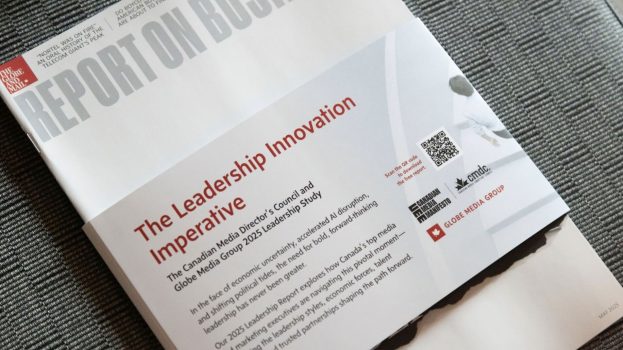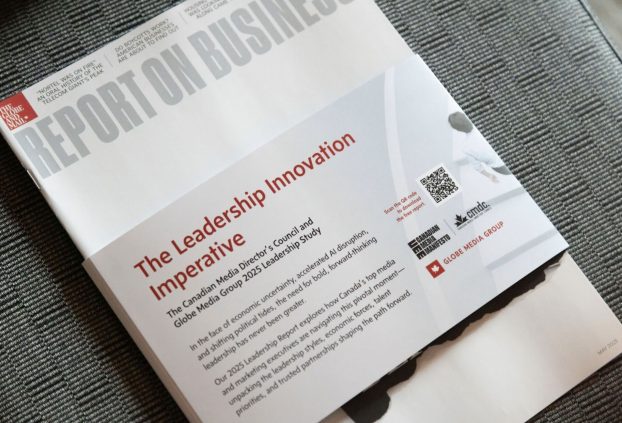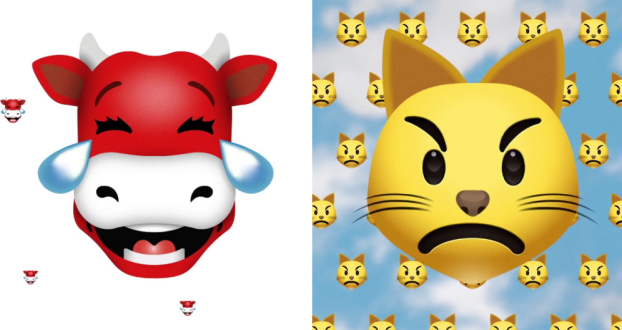Rousing a brand out of an everyday household commodity isn’t easy. In a climate of fierce competition between endless beverage choices, from high-tech sports energy drinks to flash-fizz sodas, ginseng juices and oxygen-infused water, milk’s humdrum goodness can be low on a youth market’s ‘cool’ radar. And when the product’s stakeholders happen to be dairy farmers and producers with multimillion-dollar investment in the brand – and far removed from the product’s target audience at that – you have to ask yourself who’s steering the cow.
Since he came to the position of executive director of the BC Dairy Foundation seven years ago, Robin Smith has managed to drive its advertising strategy into ever bolder campaigns that have not only struck at the heart of hip, but increased sales and drawn an array of awards, from the Bessies to Clios, Shark, Lotus, D&AD and even Cannes glory.
‘The challenge is getting milk recognized as something beyond just the thing you drink for your health,’ says Smith. ‘To make it more of a fun drink, you have to ask yourself, ‘Why do kids want to be seen drinking it?”
Faced with B.C.’s aging population (and the resulting decrease in milk consumption among its target demographic), Smith pressed for ideas that are in touch with youth.
‘We realized that we had to be a little more hard-hitting,’ says Smith. ‘The awards are great from a creative perspective, but our bottom line is: ‘Did I sell more milk?’ We’ve got attention; we built awareness through other campaigns, but we have to get people to think, ‘I’ve got to buy more and drink more milk.”
On June 9, the BC Dairy Foundation launches its latest ad campaign with its boldest, and arguably bluntest, tagline yet: ‘Must drink more milk.’ Building on previous campaign themes – that milk is good for you – the new effort features 14 broadcast executions, TV, cinema and online, all revolving around humorous, irreverent scenarios involving stop-motion animated characters.
From farting Legos to romantic odes of love between playing cards, fiercely determined bowling balls and scheming mousetraps, the ads by DDB Canada present quirky situations that end in the same moment of realization: consuming more milk would have changed the outcome for the better. A pool of directors created the spots, resulting in eclectic, multiple looks and executions, each with different logo treatments of the words ‘Must drink more milk.’
‘Humour is something people remember, and when you use cartoonish things, you can stretch your message further than you can if you have real people,’ explains Smith.
As well, by launching its own YouTube channel, the BC Dairy Foundation is not only positioning itself where its target market is most familiar, but also encouraging interaction with the brand by leveraging the momentum of video uploads incurred from past campaigns. Those include ‘Survival of the fittest,’ which took consumers back to the Stone Age to remind them of the Darwinian rule, and ‘Don’t take your body for granted,’ starring an outrageous cast of characters made of only heads and feet to depict the dangers of life without body-building milk.
At once subtle and direct, the ‘Must drink more milk’ campaign achieves a strategic balance that builds on its past marketing campaigns and ultimately creates a sense of urgency to buy and drink more milk – without preaching about its health benefits.
‘We didn’t want to show anything you’d expect from milk advertising,’ says Smith. ‘Everyone knows milk is good for you. It’s more interesting to show the downside of not drinking enough milk in a fun, humorous way.’
Out-there humour has been a signature of recent campaigns, which have required some tact to get off the ground. When the first campaign, ‘Don’t take your body for granted,’ drew some controversy, for example, Smith had to convince the board to see where youth is and explain why the BC Dairy Foundation made the marketing choices it did. By including them in the market research process, Smith won the trust of dairy farmers from the board. ‘We brought them into the room; they heard exactly what the youth were saying, so that when we had controversy, we had real messengers on the board supporting it because they were there.’
‘I’ve always liked shaking the tree,’ says Smith. ‘I think you have to take a little gamble now and again. If we did the same-old, we wouldn’t be selling milk and we wouldn’t be getting attention.’
It’s the kind of business sense that takes guts in this industry, and points to the breadth of the international experience Smith has amassed over his 40-year career. In the midst of the first Gulf War, for example, Smith helped agri-food companies in the Middle East adapt to a rapidly changing environment where supermarket and fast-food chains were entering the marketplace.
As managing director and CEO of Protein Foods Jordan, he helped turn around a one-man operation heading into receivership by training plant operations teams, developing sales and marketing strategies and ultimately growing the company to 130 – without speaking a word of Arabic. In Cairo, he helped get a poultry processing company the contract to supply to McDonald’s across Egypt and develop a line of retail and food service products, as well as marketing plans and packaging design.
Smith is also used to building consensus here in Canada. In 1985 he proposed strategies to develop markets for the P.E.I. potato industry with a committee consisting of potato growers, the Potato Marketing Board, the P.E.I. Ministry of Agriculture and Agriculture Canada. And as a consultant in the Yukon, Smith reviewed the feasibility of a commercial fresh-water fishery for the Council of Yukon Indians, and helped develop plans for the Inuvilialuit Development Corporation to set up a commercial fishery and to operate a retail food store in 1983.
But at the end of the day, will farting Legos sell more milk to teens? ‘Quite frankly, I don’t know,’ says Smith. ‘But you’ve got to have faith in your own opinion. If you research things enough, you’ll never take a chance. We have faith in our agency, and I think our board has faith in us.’























